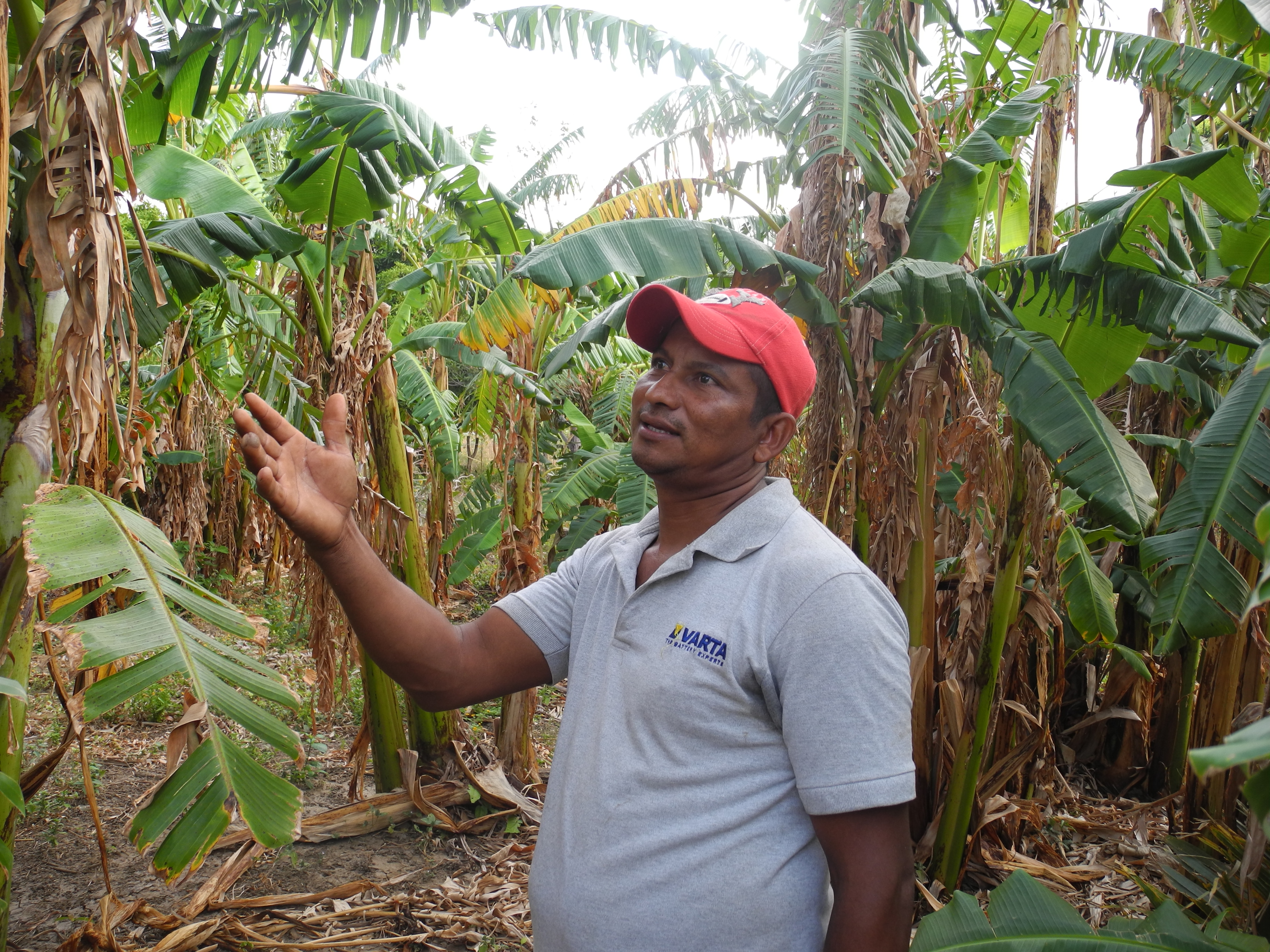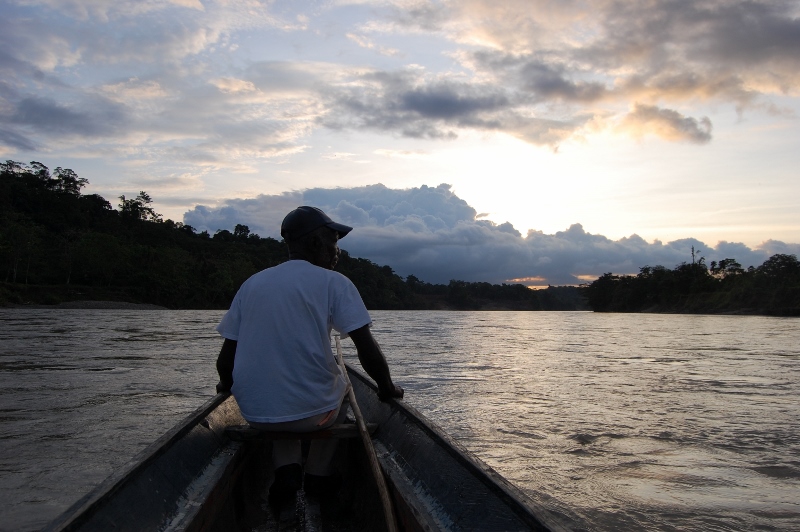Listening to the cry of the earth
Today on International Mother Earth Day, Rachel McCarthy from the CAFOD Theology Programme reflects on listening to creation. This is the third of a series of blogs ahead of Pope Francis’ encyclical on human development and ecology, expected to be published this summer.

“The cry of the poor and the cry of the earth are one.”
(Canadian Bishops Conference, 2003)
We are called to open our hearts and hear what creation is saying to us.
But what does it mean to truly listen to our sisters and brothers across the world, and to the earth?
Listening to God’s creation
The call to listen to creation is grounded in our belief that all of the earth reflects God’s glory.
Scripture reveals the inherent goodness of creation as made by God. Jesus talked to his disciples about the natural beauty of
the flowers in the fields, and said, “Not even Solomon in all his royal robes was clothed like one of these” (Matthew 6:28-30).
All living beings are made by God, and we have a deep connection with the whole of creation. Indeed, God establishes an everlasting covenant with all creatures on earth (Genesis 9:16).
Humankind, as created in the image of God, is simultaneously interconnected with all creatures and is given a special role to care for creation.
Inspired by Saint Francis of Assisi, the patron Saint of ecology, we remember that we are all members of the eco-family. We are called to praise the Creator God together with our ‘Brother Sun’ and ‘Sisters moon and stars’.
Contemplate the beauty of creation with our reflections
Listening quietens our indifference
This recognition of our interconnection is essential to confronting what Pope Francis calls “the globalisation of indifference”.
Pope Francis warns us against carelessness to our neighbours and the earth. On World Environment Day in 2013, The Holy Father said, “We are losing the attitude of wonder, contemplation, listening to creation. The implications… [are that] we have moved away from God, we no longer read His signs.”
It is our indifference towards creation which is holding us back from listening to the cry of the earth. Likewise, Pope Francis questions if our indifference to human dignity prevents us from listening to the cry of vulnerable communities across the world, who are our brothers and sisters.
We have forgotten the fragility of our earth, so much so that the changing climate is harming the most vulnerable communities. By listening to the earth and our neighbours, we can recover a sense of wonder and respect for the integrity of creation. In this way, we can allow creation to teach us how to live in right relationship with creation and with God.
Listening to the earth in Nicaragua
Rachel recently spoke to Tania Dalton, who works in the CAFOD Latin America team, about her experience of meeting communities who are living closely with the earth in Nicaragua. Tania reflects on here recent visit below.

When I visited Nicaragua in February with our partner John XXIII Institute, I met José and his sister, Marcelina. They showed me the family field where in the 1980s they had worked as children from 6am until 5pm, walking 4 kilometres there and back each time.
José and Marcelina described how they worked the land without a plough and what they grew. I saw the tree they used to sit under to rest and to make a cup of coffee, and the stump of the tree José had felled to build his house. Their whole lives were defined by the land.
Recently, José’s parents suggested selling this field. José and Marcelina responded, “No! Our sweat and our history is in this land.” The next morning, José took me to see another patch of family-owned land full of fruit trees. He could name every tree. He showed me the woodland they are preserving.
As we walked through the trees, I asked him how he feels when people don’t take care of the environment.
José said, “I feel sad. We have planted woodland on our land to help conserve the water and the humidity.”
When I asked José what the land means to him, he told me, “The land is life. It gives us everything. Without it we have nothing.”
Coming from me, a city-dweller, these words sound like a platitude. From José, with all his history of a life inseparable from the earth, they are a burning truth.
Listening moves us to act
Next time we hear about floods and droughts which damage the earth, and we are indifferent, let’s think again. For José and his family, the land is life itself.
By being attentive to the inherent goodness and also the suffering of the earth, we will learn what it means to truly listen.
Let us recognise our part in the eco-family, and commit ourselves to safeguarding God’s creation, which Pope Francis has called “our common home”.
We all have a responsibility to be co-creators, in solidarity with our neighbours, as we look forward to the coming of the Kingdom. And we do so in joyful hope, for Christ is the Redeemer all of all creation.
We look forward to deepening our understanding of these themes through Pope Francis’ encyclical on human development and ecology, expected to be released this summer.
I believe in God and in nature as an inheritance which humanity has in common.
I enjoy the smell of the earth and the caress of the sun, the wind and the rain.
I enjoy the song of the birds and the murmur of the breeze that rustles the trees.
I like contemplating the crops, listening to the sigh of the corn fields, seeing the surge of the rice fields and waiting for the smell of ripe fruit.
I believe in all God’s creatures, large and small.
A creed for creation shared with us by Erasmo Valiente, Jesuit Development Service, El Salvador.
